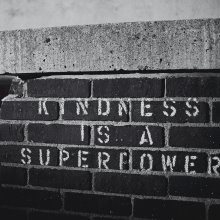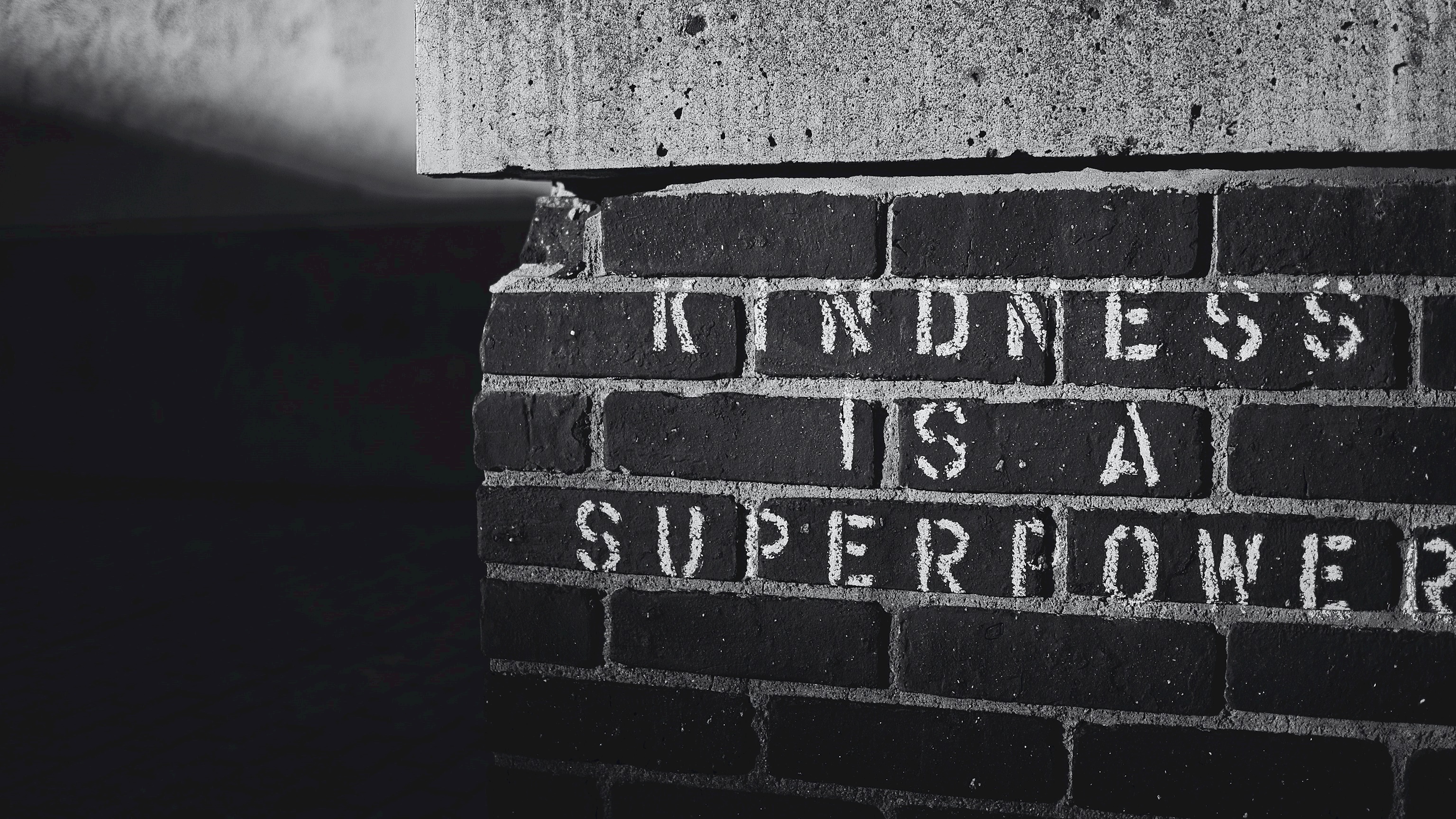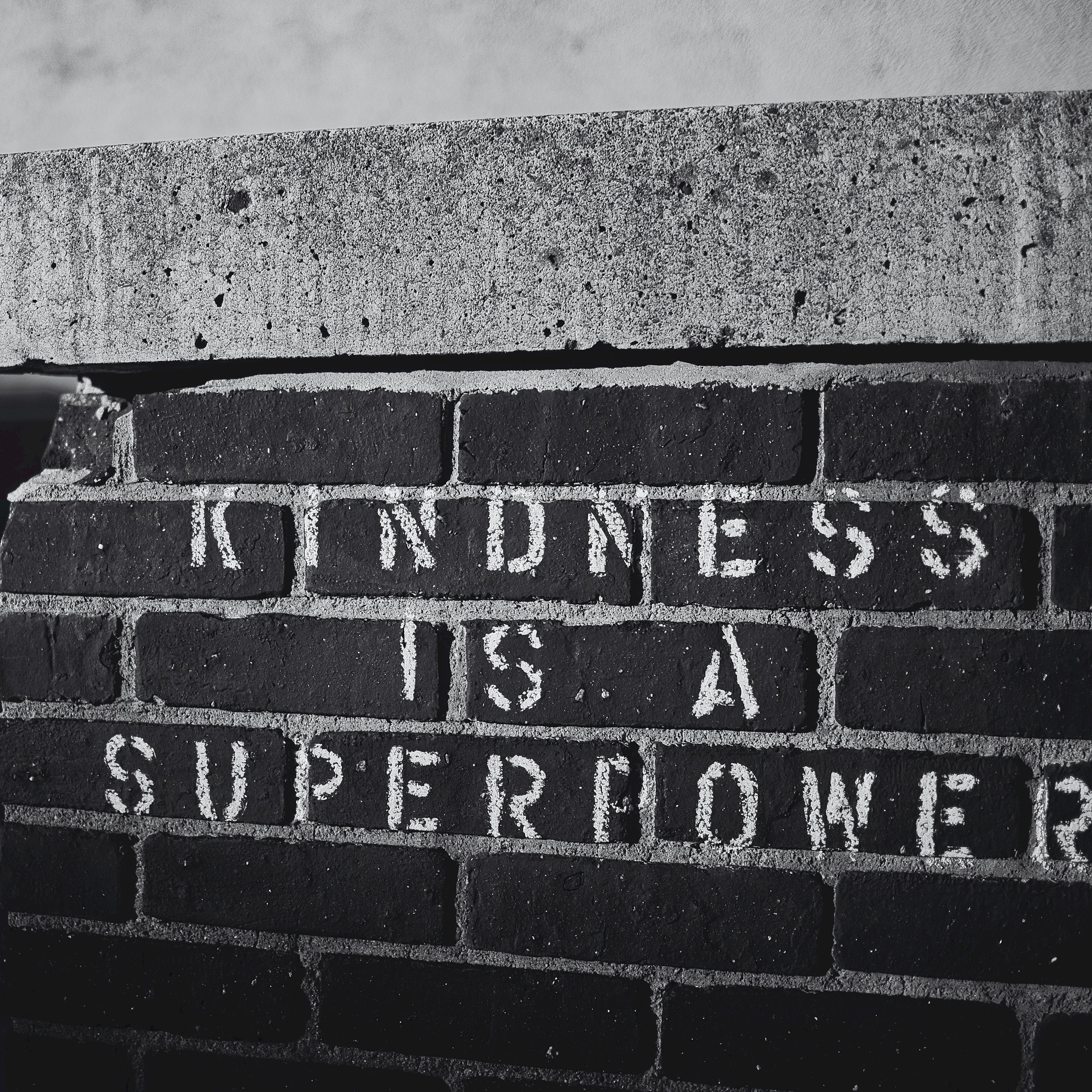Kindness

2 Samuel 2:6
“May the LORD now show you kindness and faithfulness, and I too will show you the same favor because you have done this.”

Introduction
Think of a time when you were just grinding through a hard day and it felt like the struggle just wouldn’t end. Suddenly, someone just drops into your day and does something really kind for you like bringing you food, holding the door for you, or telling a really funny joke. Seems pretty simple and, despite the magnitude of what you might have been dealing with, it brightened your day! Sometimes, just a ray of kindness is enough to outshine what negative emotions someone may be feeling.
Positive Emotions and Positive Psychology
Positive psychology is defined as focusing on the positive factors in our lives that can drown out the negatives. Positive emotions of positive psychology include: happiness, optimism, spirituality, and kindness. The general research into the effect of positive emotions says that positive emotions go a long way to increasing our physical, intellectual, social, and psychological resources. The effect of positive emotions like joy and kindness can help broaden a child’s creative mind. Building a strong repertoire of positive emotions also benefits children’s resilience. Positive emotions (especially kindness) releases helpful neurochemicals that improves our overall health. Last but not least, sharing positive emotions and positive expression of emotions helps to foster great social relationships, which can be crucial for kids.
Kindness Community
Here at Maranatha, we seek to create a kingdom culture where all students support each other in positive ways and portray the image of Christ. A really important thing for kids to gain is the power to have empathy for one another. Empathy involves taking another person’s perspective emotionally. In doing acts of kindness towards one another, you are also promoting gratitude and mutual thankfulness for each other. Another thing we tend to say is “count your blessings.” Having a friendly, supportive community makes it much easier for you to remember to be thankful. Living together in a Christ-centered community, it is important for us all to lean on one another for both guidance and Christ-like love. A small amount of kindness goes a long way to creating a welcoming community and a place to belong for all of God’s children.
Kindness in Practice
For younger kids, many are still trying to grasp perspective-taking, so promoting little acts of kindness can help them start to learn empathy. It can be as simple as praising your kids (modeling gratitude) for little things like cleaning their room without being told, taking out the trash, or even just not complaining about something they normally do. Kids look to us adults as models for how they should act, so being kind should be a reciprocal act. Even when going out to the store or a restaurant you can point out when other people are being kind to one another and reflect the emotions those people are feeling to your kids. Another way to promote gratitude with your kids is to do a daily or weekly check-in for what they struggled with, but then to encourage them to embrace what positive went well for them. Finally, don’t forget to model being kind to one’s self too! The way we treat ourselves and the extent that we take care of ourselves is also something that children will model from us and may internalize in their self-esteem.
BE KIND today by:
- Helping a neighbor carry their groceries into their house
- Leaving a little note somewhere they will see it to remind them that they are special
- Offering some of your lunch to someone who forgot to bring theirs
- Stopping to ask someone how their day is going, instead of just saying hi
- Letting someone lead a conversation and intently listening to what they say
- Making a card for someone that is having a tough time in their life
- Just by telling someone they are loved!
We love seeing our students recognize all the kindness around the school. Therefore, we have been promoting a program for students to nominate their peers for the kindness they see each other do. Students just simply fill out a short anonymous form about what kind thing that person did and then that person will receive a piece of paper taped to their locker stating what kind act they did.
Here is a link:
https://forms.office.com/Pages/ResponsePage.aspx?id=0d79cZ_DLEeavQGSst2ZFygrIOXeOYBKka1TXrGVkghUM0dZNEIxVE1LMDhUSTZTRFpGMjYzRjJDRC4u to the form.
“Kindness is a habit of giving—of wanting to lift burdens from others, or to merely provide a helping hand or a shoulder to cry on. It humanizes us; it lifts us spiritually. And, it is good for us.” (Sreenivasan & Weinberger, 2017)
References:
Fredrickson, B. L. (2001). The role of positive emotions in positive psychology: The broaden-and-build theory of positive emotions. American Psychologist, 56(3), 218-226.
http://dx.doi.org.ezp1.lib.umn.edu/10.1037/0003-066X.56.3.218
Pogosyan, M. (2019, April 11). Why Choose Kindness. Retrieved October 9, 2019, from https://www.psychologytoday.com/us/blog/between-cultures/201904/why-choose-kindness.
Sreenivasan, S., & Weinberger, L. E. (2017, November 16). Why Random Acts of Kindness Matter to Your Wellbeing. Retrieved October 9, 2019, from https://www.psychologytoday.com/us/blog/emotionalnourishment/201711/why-random-acts-kindness-matter-your-wellbeing.











